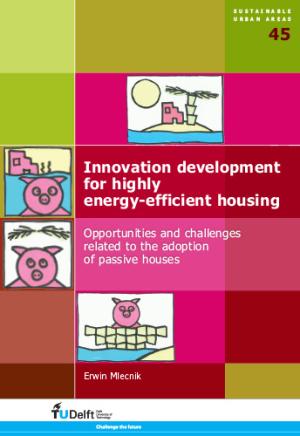Hosted by
Innovation Development for Highly Energy-Efficient Housing: Opportunities and Challenges Related to the Adoption of Passive Houses
Synopsis
In previous years we have seen a recognition of the significant potential that exists for reducing energy use through innovation in residential buildings. This study investigates innovation challenges and identifies opportunities that could lead to a rapid increase in the adoption of highly energy-efficient housing concepts, particularly that of the passive house. To this end, it exemplifies, interprets and develops the innovation adoption theory through an investigation of views and experiences on the supply side, the demand side and the policy side.
It highlights successful innovation trajectories and barriers experienced by businesses. It addresses both problems and positive experiences from the perspective of the end user and investigates different policy approaches. As such, the research reveals important features of innovation-adoption strategies in the building sector. It shows how multi-player enterprise collaboration plays a key role, and the study also recommends the development of quality assurance schemes. It makes a valuable contribution to discussions about how active the role of government policymakers and enterprise networks should be.

